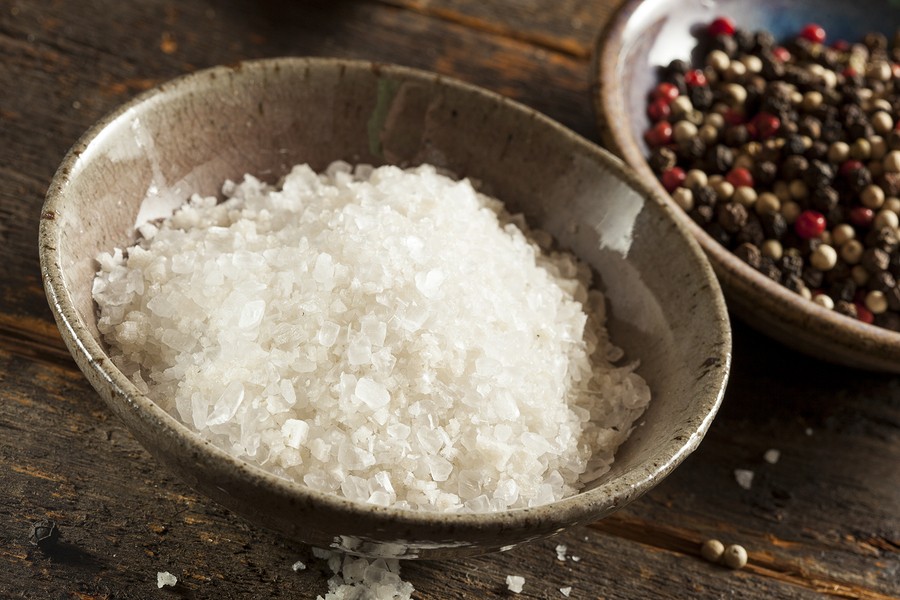What is Anemia? Part 2
Anemia caused by Vitamin B-12 and/or Folate Deficiency.
Even though iron deficiency anemia (part 1) is the number one nutrient deficiency in the U.S among children and women of childbearing age, there are other types of anemia as well. Anemia can also be caused by vitamin B-12 and folate deficiencies. Folate is the general term for compounds like the B vitamin folic acid. Although these compounds differ slightly, the terms are often used interchangeably.
What Are The Symptoms Of Anemia?
No matter what nutrient is involved, the main thing to remember is that anemia limits the body’s ability to get oxygen into your cells. Simply said your cells, including muscle, nerve and brain cells, aren’t getting the oxygen they need to work correctly. This can cause fatigue, concentration problems, decreased appetite, heartburn and even the desire to eat ice or other unusual things, which is called PICA. In addition, vitamin B-12 deficiency can cause numbness and tingling in the hands and feet, loss of vibration and position sense, poor muscle coordination, poor memory, and even hallucinations. A sore or swollen tongue can be related to vitamin B-12 or folate deficiency, which can usually be cleared up with a quality supplement. A good B-complex vitamin should contain methylcobalamin and methylfolate. Quality supplements can be ordered from our Well Store.
What Nutrient Deficiencies Cause Anemia?
Most often, anemia is caused by lack of nutrients consumed in the diet. These nutrients include protein, iron, B vitamins and even vitamin C, which helps you absorb iron. Sometimes, vitamin B-12 deficiency occurs over time in strict vegetarians who don’t include eggs and milk in their diets. Other times, anemia is caused by blood loss, chronic disease, medications, or genetic abnormalities. This is the case with pernicious anemia.
What is Pernicious Anemia?
Pernicious anemia is a deficiency of vitamin B-12 caused by a genetic disorder that creates a lack of intrinsic factor in the stomach fluid. Intrinsic factor is necessary for the absorption of this important B-vitamin. Prior to 1926, this was incurable and resulted in death. Anemia from not absorbing the nutrients in food can also be caused by stomach altering surgery or Celiac Disease. In Celiac Disease, the cells lining the stomach are damaged by eating gluten from wheat, rye or barley, and are then unable to absorb many nutrients. Many times, anemia that is unresponsive to treatment has an underlying cause such as this. Even people who drink excessive alcohol may have inflammation in their stomach (gastritis), which can inhibit the absorption of B vitamins from food.
Can Medications Cause Anemia?
Medications can interfere with absorption of nutrients, as mentioned in part 1 of this article. Metformin, a medication used for diabetes and Polycystic Ovarian Syndrome (PCOS), can interfere with vitamin B-12 absorption. I won’t get into PCOS at this time, because that is a subject worthy of a full article of its own. However, if you are on any of these medications long-term, then you should work with a Registered Dietitian Nutritionist (RDN). Dietitians can help determine ways to get more of these vital nutrients into your diet. They may suggest foods or supplements that dissolve under your tongue, called sub-lingual supplements.
Dangers of Folic Acid Supplements in B-12 Deficiency:
Vitamin B-12 deficiency can result in folate deficiency and they often go hand-in-hand. Folate needs increase in pregnancy, growth and in alcoholism. However, there is concern with treating anemia with folate alone. Treatment with folate or folic acid supplements can mask a vitamin B-12 deficiency and if left untreated, the neurological symptoms of vitamin B-12 deficiency can be irreversible. You can overcome this concern with a quality vitamin that contains both nutrients. I prefer to treat my at-risk patients with the activated form of both nutrients in an under-the-tongue form. You can find my favorite supplement companies on my Well Store above.
What is the Difference Between Folate and Folic Acid?
Folate found naturally in foods, is the easiest and safest way to prevent folate deficiency. Foods that are rich in folate include liver, black-eyed peas, beans, spinach, wheat germ and fresh orange juice. Foods rich in vitamin B-12 include clams, liver, oysters, crab, tuna, beef, milk, eggs, and dairy. Additionally, a multivitamin or B-complex supplement is safer than separate folic acid or separate B-vitamin supplements.
What Lab Results Show Anemia?
Routine lab values can show clues to your iron, folate and vitamin B-12 status. Have a registered dietitian take a look at your lab work to see if there are any nutrient deficiencies or nutrient excesses.
Part 1 of this article is also posted. If you are diagnosed with anemia, we can review your labs. In addition, we can also suggest a good quality supplement for you. You will feel a lot better once we get your nutrient status where it should be. Schedule a consultation under services above.












